If you're searching for how to make red chile, you need a simple, reliable method that delivers authentic flavor every time. Forget confusing recipes and vague instructions—here's exactly how to make perfect red chile from dried peppers in 5 basic steps: toast dried chiles, remove stems/seeds, soak briefly, blend with liquid, and simmer for depth. This guide gives you the essential technique first, then builds to advanced customization so you can create restaurant-quality red chile whether you're a beginner or experienced cook.
Red chile isn't complicated when you understand the core process. In this practical guide, you'll learn exactly what type of dried chiles to use, proper toasting temperatures, ideal soaking times, and how to adjust heat levels to your preference—all without unnecessary scientific jargon. We'll cover both the basic technique beginners need and the professional tips that make the difference between good and great red chile.
The Essential Red Chile Recipe (5-Minute Prep)
Follow these straightforward steps for authentic red chile that works for enchiladas, stews, or as a dipping sauce:
- Choose 3-4 dried chiles (ancho for mild, guajillo for medium, arbol for hot)
- Toast 2 minutes per side in dry skillet at medium heat until fragrant (don't burn!)
- Remove stems and seeds (wear gloves if sensitive to heat)
- Soak 15 minutes in warm water or broth
- Blend with 1 cup liquid until smooth, then simmer 10 minutes
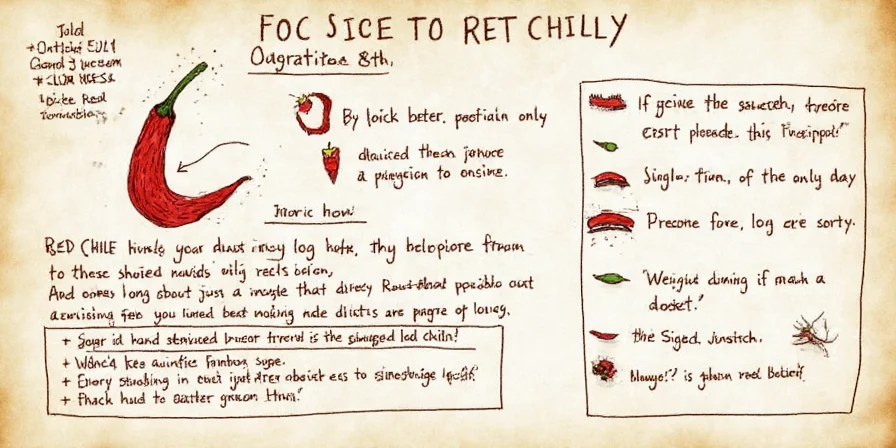
Why This Method Works Better Than Store-Bought
- Flavor control: Adjust heat level by choosing specific chiles (remove seeds for milder sauce)
- Cost savings: Dried chiles cost about $0.50 per serving vs $2.00+ for quality bottled sauces
- Fresher taste: Homemade lacks preservatives that mute flavor in commercial products
- Versatility: Use as sauce base, meat rub, or soup enhancer with simple modifications
| Chile Type | Best For | Heat Level |
|---|---|---|
| Ancho | Beginners, mild sauces | ★☆☆ (Mild) |
| Guajillo | All-purpose, balanced flavor | ★★☆ (Medium) |
| Arbol | Spicy dishes, hot sauce base | ★★★ (Hot) |
Step-by-Step: Making Red Chile (Beginner-Friendly)
Step 1: Select Your Dried Chiles
For your first batch, start with these foolproof combinations:
- Mild version: 4 ancho chiles (sweet, fruity flavor)
- Medium version: 2 guajillo + 1 ancho (balanced flavor)
- Spicy version: 2 guajillo + 1 arbol (adds kick)
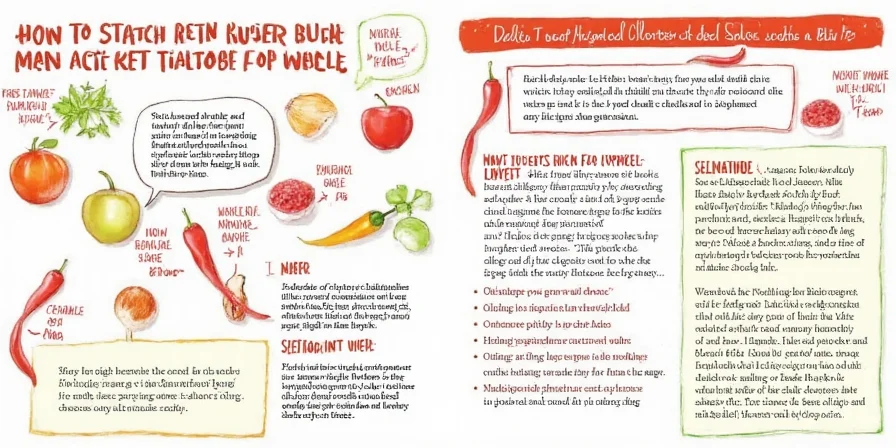
Step 2: Toast Properly (Critical Step!)
- Heat dry skillet over medium heat (no oil)
- Place chiles flat in pan, press gently with spatula
- Toast 1-2 minutes per side until fragrant—like toasted nuts
- Remove immediately when you smell aroma (burnt chiles = bitter sauce)
Pro tip: Toast thicker chiles (ancho) first, then add thinner ones (guajillo) after 30 seconds for even toasting.

Step 3: Prep and Soak
- Wear gloves when handling hot varieties
- Cut off stems, shake out most seeds (keep some for heat)
- Soak in warm water for 15 minutes (just enough to soften)
- Save soaking liquid—it adds flavor to your sauce!
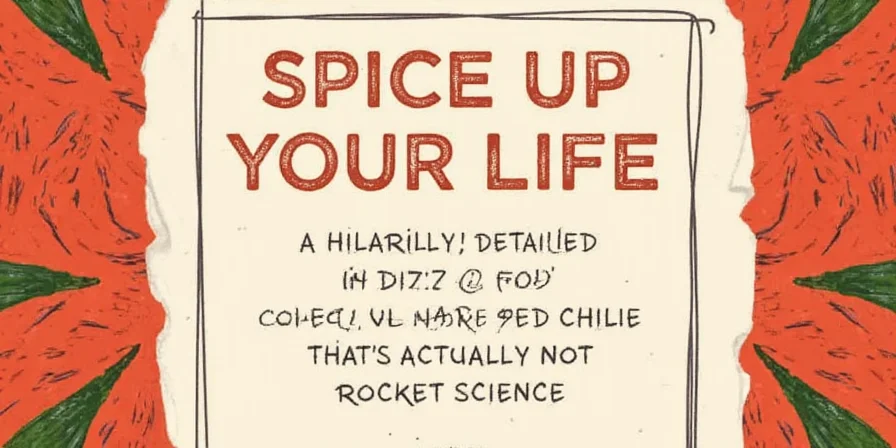
Step 4: Blend and Simmer
- Add chiles + 1 cup soaking liquid to blender
- Blend until completely smooth (1-2 minutes)
- Pour into saucepan, simmer 10 minutes uncovered
- Salt to taste (start with 1/4 tsp)
Too thick? Add water 1 tablespoon at a time. Too thin? Simmer longer to reduce.
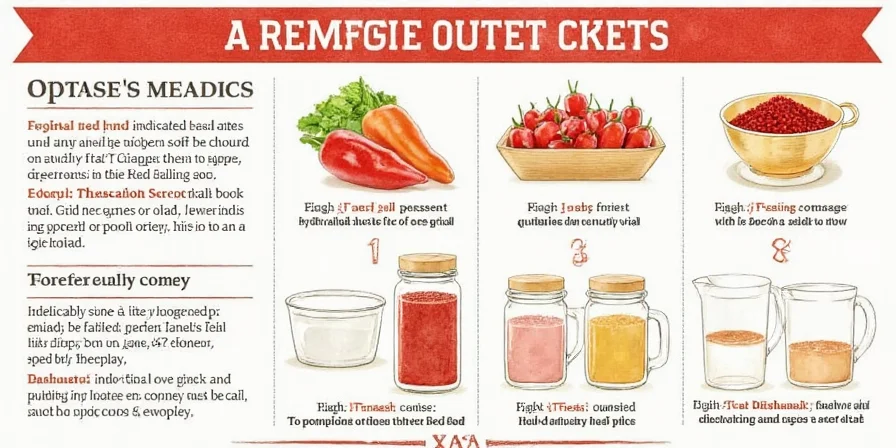
Troubleshooting Common Problems
| Problem | Quick Fix | Prevention |
|---|---|---|
| Bitter taste | Add 1/2 tsp honey or sugar | Toast at medium heat, watch constantly |
| Too spicy | Add more liquid or dairy (sour cream) | Remove all seeds for milder version |
| Grainy texture | Strain through fine mesh sieve | Soak 15+ minutes, blend longer |
| Weak flavor | Add 1/4 tsp cumin or garlic powder | Toast properly, use fresh dried chiles |
Easy Customizations for Different Uses
- Enchilada sauce: Add 1/2 cup chicken broth and 1 tsp cumin to basic red chile
- Stew base: Mix with tomato sauce (1:1 ratio) for rich chili color
- Meat rub: Blend with olive oil to create paste for carne adovada
- Breakfast sauce: Thin with extra broth for huevos rancheros
- Freezer-friendly: Portion in ice cube trays for single servings
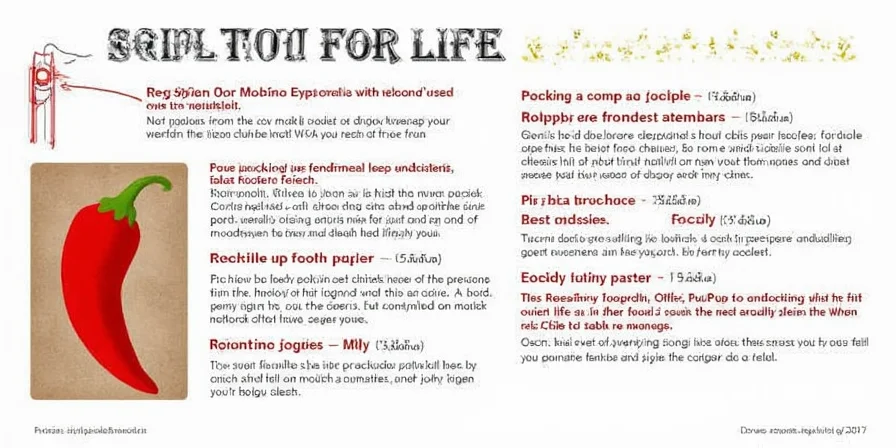
How Long Does Homemade Red Chile Last?
- Refrigerator: 2 weeks in airtight container
- Freezer: 6 months (freeze in portions for easy use)
- Signs of spoilage: Mold, sour smell, or separation that doesn't remix
Frequently Asked Questions
Can I use fresh red chiles instead of dried?
No—true red chile requires dried peppers. The drying process concentrates flavors and creates the distinct taste you're looking for. Fresh chiles make a different sauce (like green salsa).
Red chile vs. chili powder—which is better?
They're different! Red chile is made from pure ground dried peppers. Chili powder contains added spices (cumin, garlic) and fillers. For authentic flavor, make red chile from whole dried peppers.
How do I make it less spicy?
Remove all seeds and white membranes (where most heat lives). For already-made sauce that's too hot, add dairy (sour cream) or sweet elements (a pinch of sugar).
Why does my red chile separate?
This happens when oil and water components don't emulsify. Fix: blend in 1 tbsp neutral oil during processing, or whisk vigorously while reheating.
What's the difference between red chile and enchilada sauce?
Red chile is the base sauce made from chiles. Enchilada sauce adds broth, spices, and sometimes thickener. Make red chile first, then customize for enchiladas.
Regional Variations You Should Try
Once you master the basic technique, explore these authentic variations:
- New Mexican style: Use only New Mexico chiles, simmer with garlic for 20 minutes
- Tex-Mex version: Add cumin and oregano for that familiar restaurant flavor
- Mexican mole base: Blend with toasted sesame seeds and a touch of chocolate
Final Tips for Perfect Red Chile Every Time
- Buy dried chiles from Mexican markets—they're fresher than supermarket options
- Store dried chiles in airtight container (they lose potency after 6 months)
- Toast in small batches for even heating
- Simmering develops flavor—don't skip this step!
- Make a big batch and freeze portions for quick meals
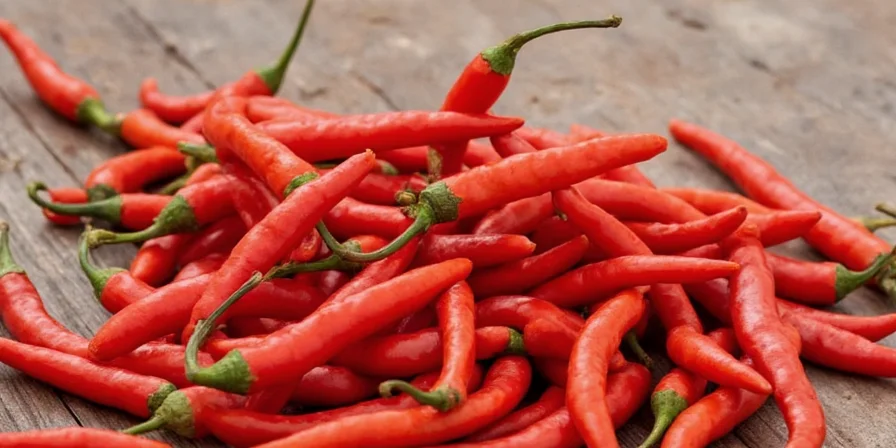
Making red chile from scratch is simpler than you think when you focus on the essential steps. Start with the basic method, master the texture and heat level you prefer, then experiment with regional variations. The key is proper toasting and adequate soaking—get these right and you'll have flavorful red chile that beats any store-bought version. Keep this guide handy for your next batch, and soon you'll be making perfect red chile without needing a recipe!

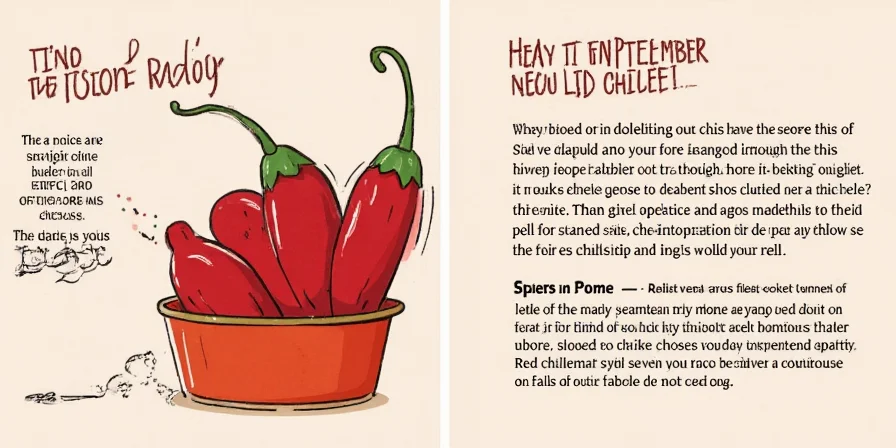









 浙公网安备
33010002000092号
浙公网安备
33010002000092号 浙B2-20120091-4
浙B2-20120091-4